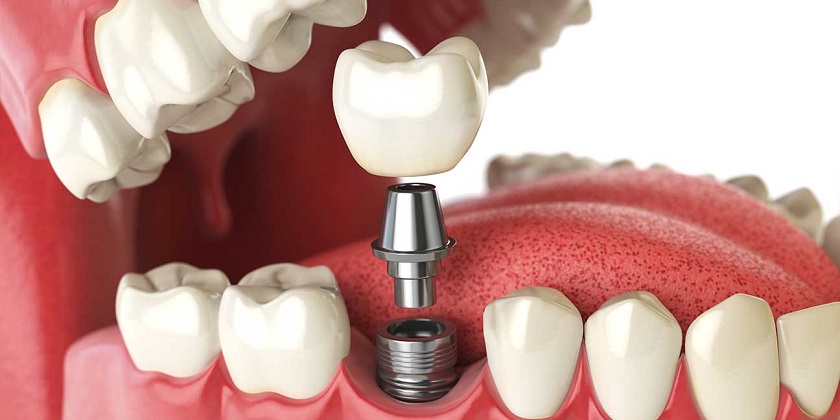- Home
- Artificial Teeth

Artificial teeth or dentures are the replacement for missing teeth and its surrounding tissues which are removable. There are two types of dentures which are available. One is complete dentures and the other one is partial dentures. Complete dentures are used when someone has lost all his/her teeth. On the other hand, partial dentures are a replacement for a few missing teeth.
Complete dentures can either be “immediate” or “conventional”. These are made after the remaining rotten or damaged teeth have been completely removed and the gum tissue has started to heal. This happens after a period of 8 to 12 weeks after the removal of teeth. Immediate dentures are quite different from that of conventional dentures. These are made in advance and are positioned immediately after the removal of teeth. As the result, the one who has to wear the artificial teeth does not have to be without teeth during the healing period. Partial dentures or bridge are replacement teeth attached to a gum-colored or a pink plastic base. At times this is connected by a metal framework which holds the dentures intact in the mouth. When there are one or more natural teeth remaining in the upper or lower jaw that is the time you need partial dentures.
How is the treatment done?
The process of denture development takes approximately three to six weeks and a number of appointments. As soon as your prosthodontist (a dentist who specializes in the replacement and restoration of teeth) or dentist determines the type of appliance that is best suited for you, the first step is to make various impressions of your jaw, so as to take measurements of the relation and space in between your jaws. The next step is to create wax forms, models, and plastic patterns in the precise shape and location of the denture to be prepared. You will have to try out this model multiple times and then there will be an assessment of the denture for shape, fit and color before the casting of the final denture. After the whole assessment, part is done and the denture is finally made, it needs to be cast in your mouth. Lastly, there will be some adjustments made, only if necessary. One or more teeth is replaced by a fixed bridge by positioning the crowns on the teeth on one side of the space and joining the artificial teeth to them. After this, the “bridge” is cemented into place. Artificial teeth not only fill the spaces made by the missing teeth, but it also prevents the teeth from changing its position too.
Who is eligible for the treatment? (When is the treatment done?)
A person who had his/her damaged or rotten teeth taken out and cannot afford dental implants is eligible for the usage of artificial teeth.
Who is not eligible for the treatment?
A person with difficulty in the adjustment of dentures is precluded from the usage of dentures. For example, a person with the loose fitting of dentures which keep falling out and a person whose jaw hurts constantly on inserting the dentures in his/her mouth are not eligible for the treatment.
Are there any side effects?
New dentures will feel a little loose or odd for a few weeks at the beginning as the muscles of the tongue and cheeks need to learn t keep them intact after some time and you get comfortable putting them inside and removing them. Along with this, there will be soreness, minor irritation and increased flow of saliva. But these conditions will diminish as soon as the mouth adjusts.
What are the post-treatment guidelines?
After the new dentures are cast, it will be uncomfortable for new wearers to eat for a few weeks. A little practice will make you adjust to the new eating habits with dentures. In order to get used to the denture, you must start with soft food items which are cut into small pieces. Make sure to chew softly and use both sides of your mouth while chewing. As you start getting used to the new denture ass more food items to your diet chart until you return back to your normal diet. Be cautious with sharp-edges bones, shells, hot or hard foods. Avoid the consumption of extremely sticky foods. Chewing gum should also be avoided while wearing dentures. Also, be sure to not use toothpicks while wearing artificial teeth. Practice pronouncing loud words as you may have difficulty in pronouncing specific words while wearing dentures. Use adhesives in case you want full satisfaction of a perfectly constructed artificial teeth.
How long does it take to recover?
It takes about a month or so in order for the dentures to adjust properly in the mouth.
Are the results of the treatment permanent?
The result of the treatment lasts only as long as you continue wearing artificial teeth. As soon as you take them out, they will be of no use to you as they will no longer be able to act as a replacement to your missing teeth.

